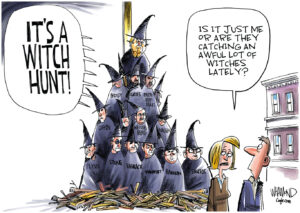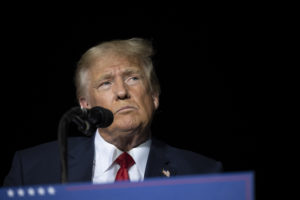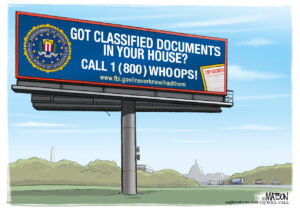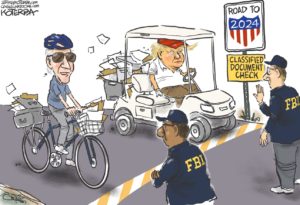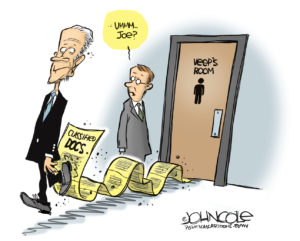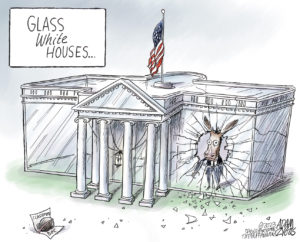22 Clinton Emails Deemed ‘Top Secret’ by State Department (VIDEO)
Some previously released emails have since been redacted, but the 22 now declared top-secret are the first to be withheld outright.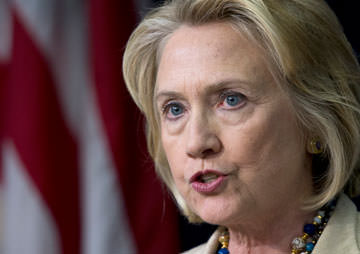 Carolyn Kaster / AP
Carolyn Kaster / AP
Carolyn Kaster / AP
Confirming that former Secretary of State Hillary Clinton’s private computer server held highly classified material, the U.S. government Friday censored 22 emails.
The seven email chains from the Democratic presidential front-runner will be withheld from the public because information in them has been deemed “top secret,” announced John Kirby, State Department spokesman. However, “These documents were not marked classified at the time that they were sent,” he said, having been upgraded at the request of intelligence agencies.
Previously released emails have been redacted after being assessed to include information that should not be made public, The New York Times reports, but the 22 top-secret emails are the first to be withheld in their entirety.
Watch Kirby’s announcement in this AP video:
The New York Times reports:
The disclosure of the top secret emails, three days before Iowans vote in the first-in-the-nation caucuses, is certain to fuel the political debate over the unclassified computer server that Mrs. Clinton, the front-runner for the Democratic presidential nomination, kept in her home. The State Department released another set of her emails on Friday night in response to a Freedom of Information Act request.
The top secret emails lent credence to criticism by Mrs. Clinton’s rivals in the presidential race of her handling of classified information while she was secretary of state from 2009 to 2013. It is against the law for officials to discuss classified information on unclassified networks used for routine business or on private servers, and the F.B.I. is looking into whether such information was mishandled.
The State Department said it had “upgraded” the classification of the emails at the request of the nation’s intelligence agencies. Mr. Kirby said that none of the emails had been marked at any level of classification at the time they were sent through Mrs. Clinton’s computer server.
Mrs. Clinton’s campaign responded forcefully, saying that the process of reviewing the emails “appears to be over-classification run amok.” A spokesman, Brian Fallon, said all of the emails should be released.
“We understand that these emails were likely originated on the State Department’s unclassified system before they were ever shared with Secretary Clinton, and they have remained on the department’s unclassified system for years,” Mr. Fallon said.
Neither Mr. Kirby nor other officials would discuss the emails now being withheld, but the classified emails include those cited in a letter sent to the Senate on Jan. 14 by the inspector general of the nation’s intelligence agencies, I. Charles McCullough III.
Mr. McCullough wrote that “several dozen emails” contained classified information, including some now determined to contain information at the “top secret/S.A.P.” level. That designation refers to “special access programs,” which are among the government’s most closely guarded secrets.
It was not clear whether those emails were written by Mrs. Clinton or, as has been more often the case with the thousands of emails released so far, were messages written by other State Department officials and forwarded by her closest aides.
Officials at the State Department have said the “upgrading” of the classification of Mrs. Clinton’s emails has been routine. Mr. Kirby said Friday that the classification review was “focused on whether they need to be classified today.”
The latest developments prompted new attacks on Mrs. Clinton from Republican presidential candidates. Senator Marco Rubio of Florida, campaigning in Iowa, said the disclosure disqualified her to be president.
“If someone on my staff did what she did, you know what would happen?” he said. “They would be fired, and they would be prosecuted.”
Senator Dianne Feinstein, Democrat of California, said in a statement that it made no sense to her that “Secretary Clinton can be held responsible for email exchanges that originated with someone else.”
“The only reason to hold Secretary Clinton responsible for emails that didn’t originate with her is for political points, and that’s what we’ve seen over the past several months,” she added.
The Clinton campaign’s response has reflected an effort to highlight the selective judgments that can be involved in the classification process.
Mrs. Clinton, in an interview with NPR last week, suggested that at least one of the emails at issue included an article from The New York Times about the administration’s classified drone programs. It was not clear which article she was referring to; the use of drones has been the subject of numerous news reports and books.
“How a New York Times public article that goes around the world could be in any way viewed as classified, or the fact that it would be sent to other people off of the New York Times site, I think, is one of the difficulties that people have in understanding what this is about,” she said.
Read more here.
–Posted by Roisin Davis
Your support matters…Independent journalism is under threat and overshadowed by heavily funded mainstream media.
You can help level the playing field. Become a member.
Your tax-deductible contribution keeps us digging beneath the headlines to give you thought-provoking, investigative reporting and analysis that unearths what's really happening- without compromise.
Give today to support our courageous, independent journalists.
